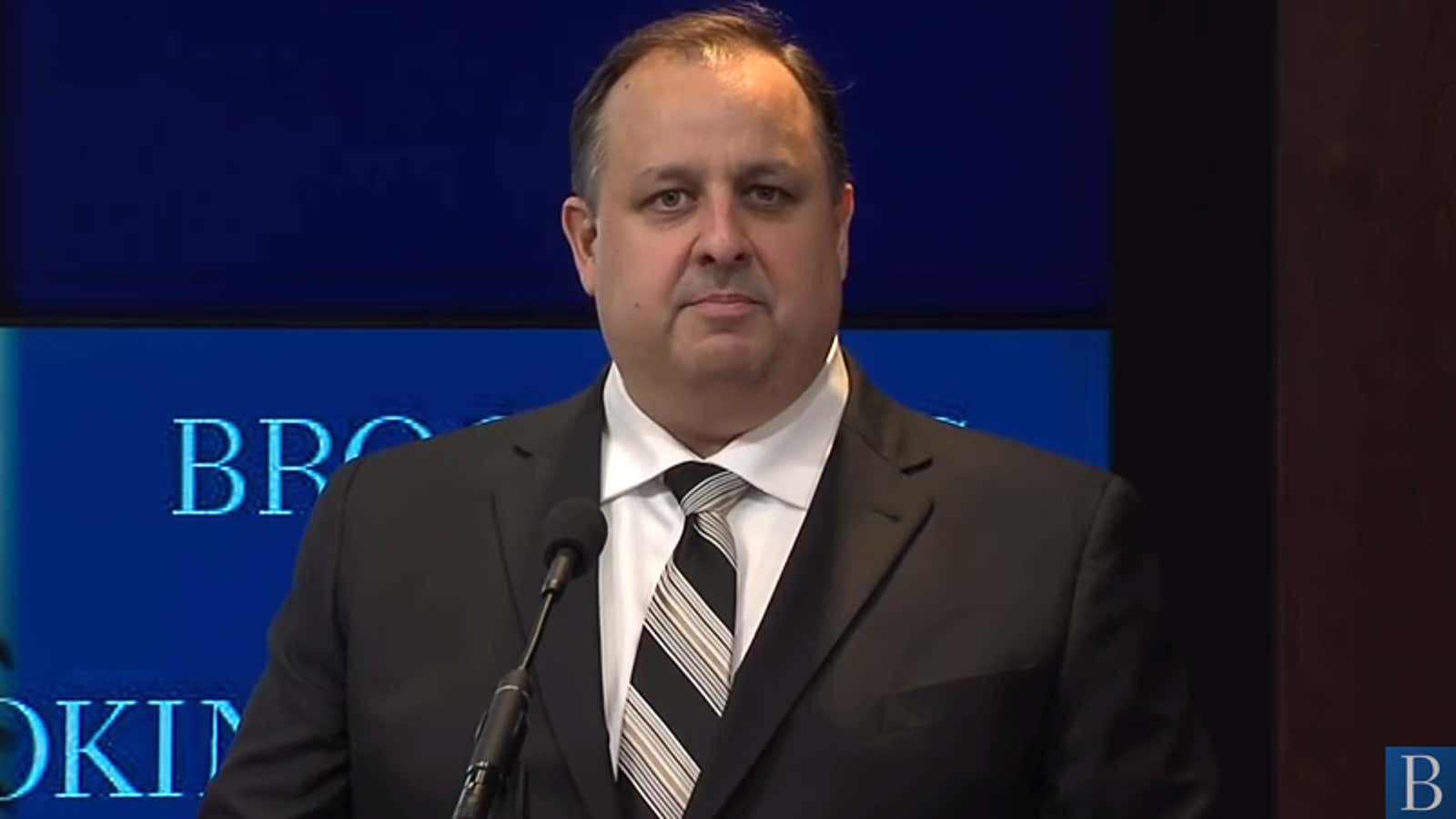Walter Shaub, director of the US Office of Government Ethics, who has pushed the Trump administration for months to comply with historical norms for a president and his cabinet, seems to finally have had enough.
The career civil servant, who worked in the office under three presidential administrations, resigned unexpectedly today (July 6), six months before his term was due to finish. “In working with the current administration, it has become clear to me that we need improvements to the existing ethics program,” Shaub tweeted. In his resignation letter to president Donald Trump, Shaub cited the OGE’s motto in italics, “Public service is a public trust” and said the office’s employees put the loyalty to the US Constitution, laws, and ethical principles “above private gain.”
Shaub is joining the Campaign Legal Center, a nonpartisan group of voting-law experts that pushes for elections to be more transparent and accessible. He will serve as a senior director, overseeing ethics. A person briefed on Shaub’s thinking said, “He wants to broaden his focus on beyond the executive branch” by looking at ethics in Congress and in state and local governments. He plans to “inform the public about the good, the bad, and the ugly in government ethics.”
Shaub feels he will have more influence outside government than inside it, this person said, because in his new role he can file Freedom of Information Act requests and official complaints, make policy recommendations, and advise on legislation, among other things. The Campaign Legal Center is suing the Department of Justice for more information about why it changed its stance on private prisons under Trump, among other cases.
The OGE is an advisory body to the executive branch of the US government tasked with helping officials taking public office to shed conflicts of interest by selling off assets, resigning from board positions, or severing business relationships.
Even before Trump was sworn in, he and Shaub appeared to be on a collision course. Trump refused to divest his business holdings before taking office, a voluntary standard most previous presidents have met. Shaub complained publicly that “the plan the President-elect has announced doesn’t meet the standards that the best of his nominees are meeting and that every President in the past four decades has met.”
The White House had no immediate comment on Shaub’s resignation.
